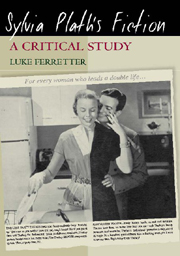1 - Literary Contexts
Published online by Cambridge University Press: 12 September 2012
Summary
I begin with an examination of the literary contexts in which Plath wrote and to which her fiction responds. She made numerous references in her journals to attempting to learn style, technique and even content from the writers, both literary and popular, whose work constituted her contemporary milieu. On 4 March 1957, for example, she wrote that she needed ‘several masters’ in writing her Cambridge novel (J 274). She considers D. H. Lawrence, but rejects him as too ‘bare’ and ‘journalistic’, except in Women in Love. She considers Henry James, but rejects him as too ‘elaborate’, ‘calm’ and ‘well- mannered’. She thinks of Joyce Cary, noting that she herself has Cary's ‘fresh, brazen colloquial voice’. Salinger has that voice too, but his style demands a first- person speaker, Plath reflects, which is ‘too limiting’ (J 275). Hughes recalls that she ‘analysed stories by various popular writers, taking them apart and studying their machinery’, looking for all that she could learn from each author. In this chapter, I discuss the writers and texts that constituted the most significant influences on Plath as a fiction writer.
Virginia Woolf
Plath first read Mrs Dalloway in Wilbury Crockett's English class at high school. As a sophomore at Smith, she studied Woolf with Elizabeth Drew in Eng 211 Literature of the Nineteenth and Twentieth Centuries. Drew published several pieces of criticism of Woolf's work, and from them we can get a good idea of the kind of interpretation Plath heard in her lectures.
- Type
- Chapter
- Information
- Sylvia Plath's FictionA Critical Study, pp. 16 - 57Publisher: Edinburgh University PressPrint publication year: 2010



